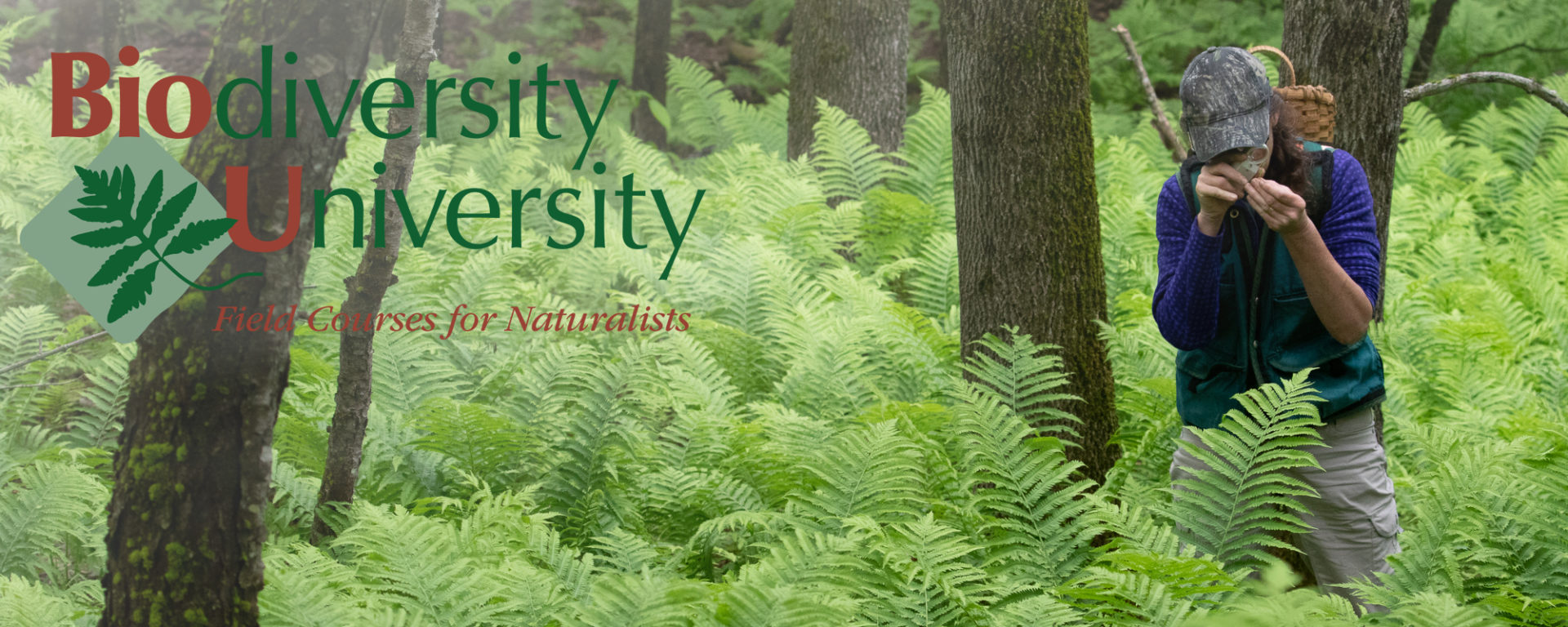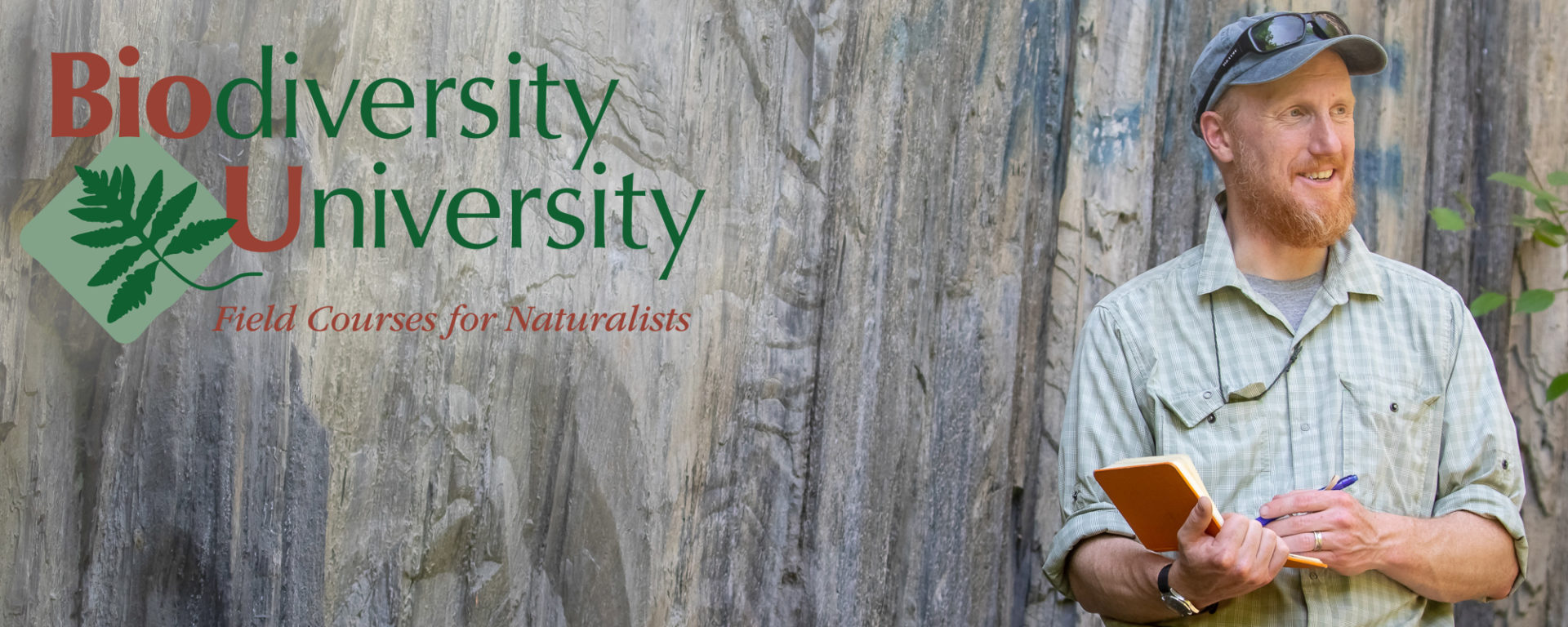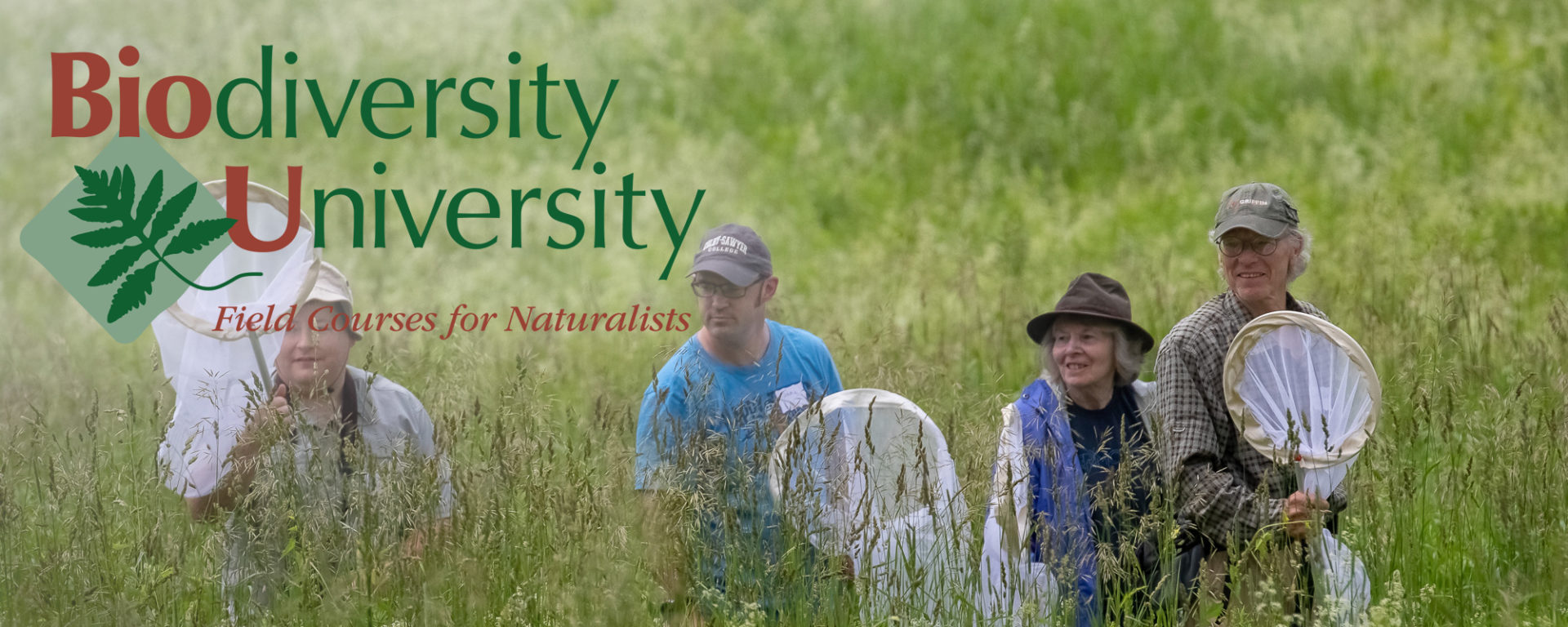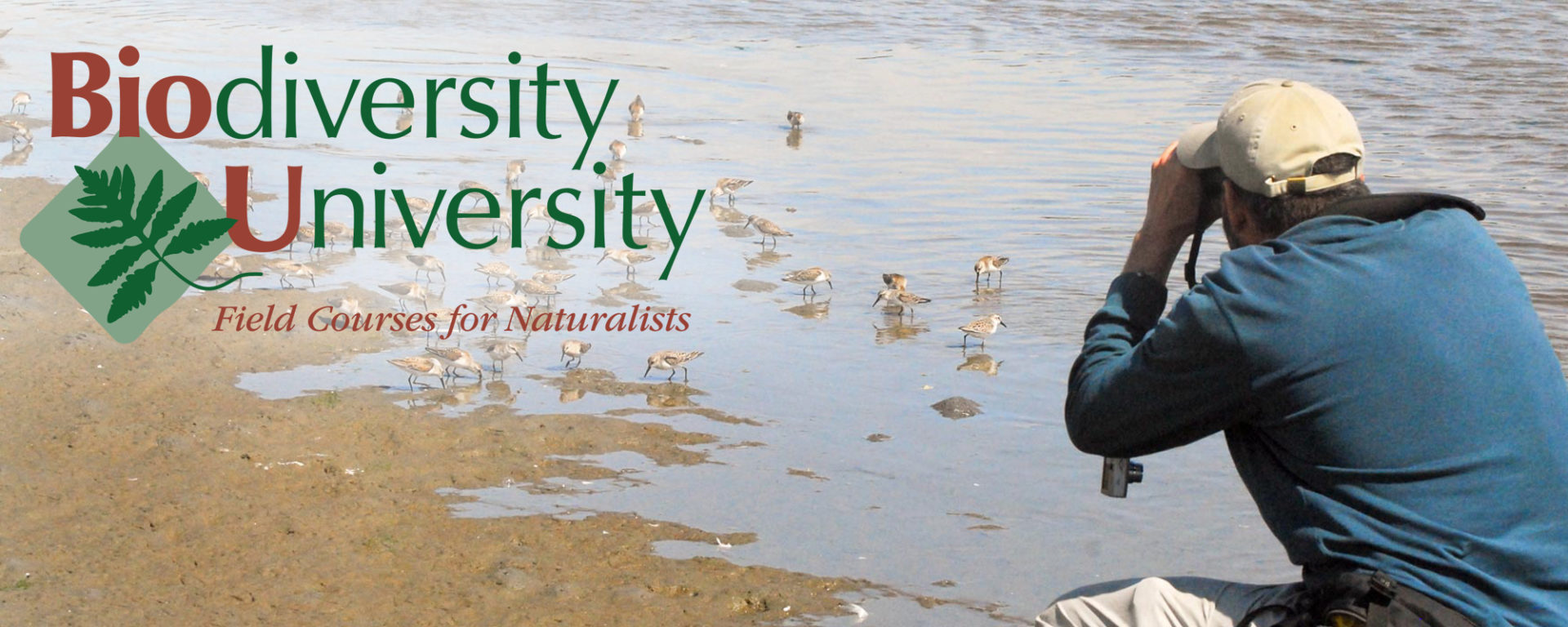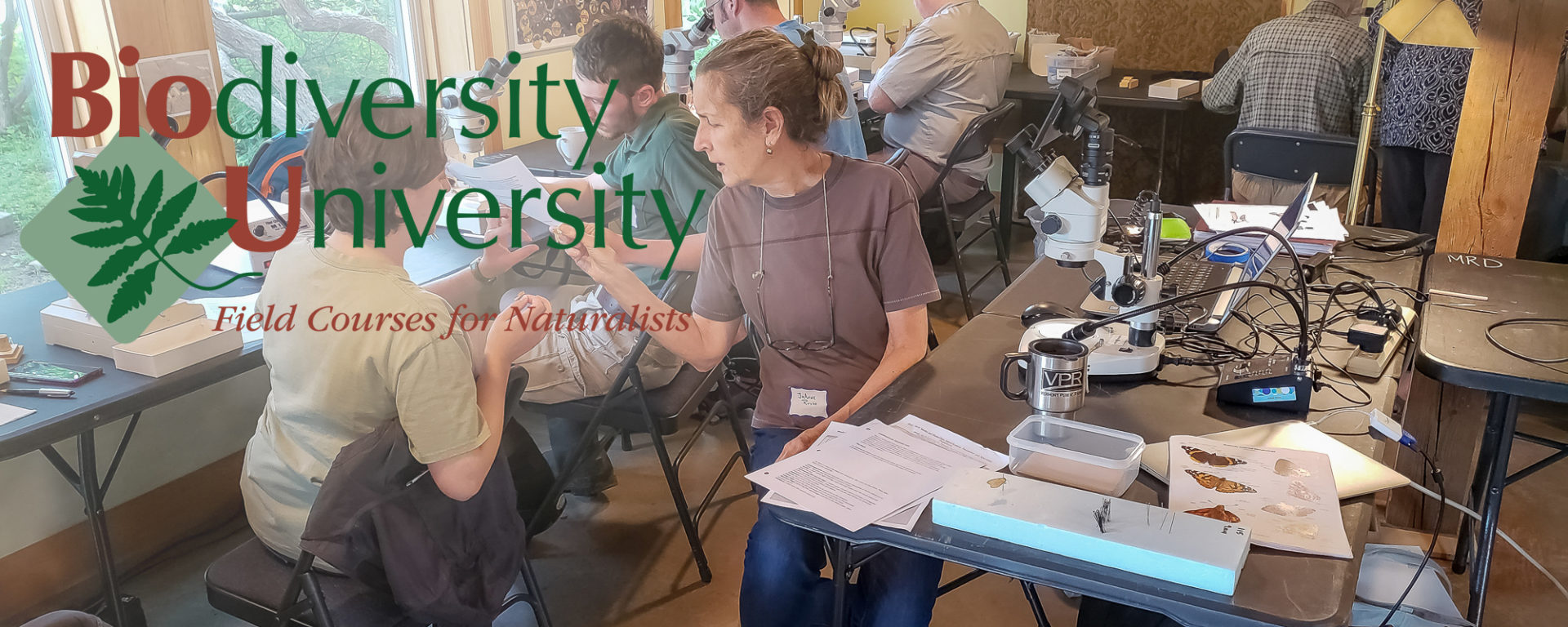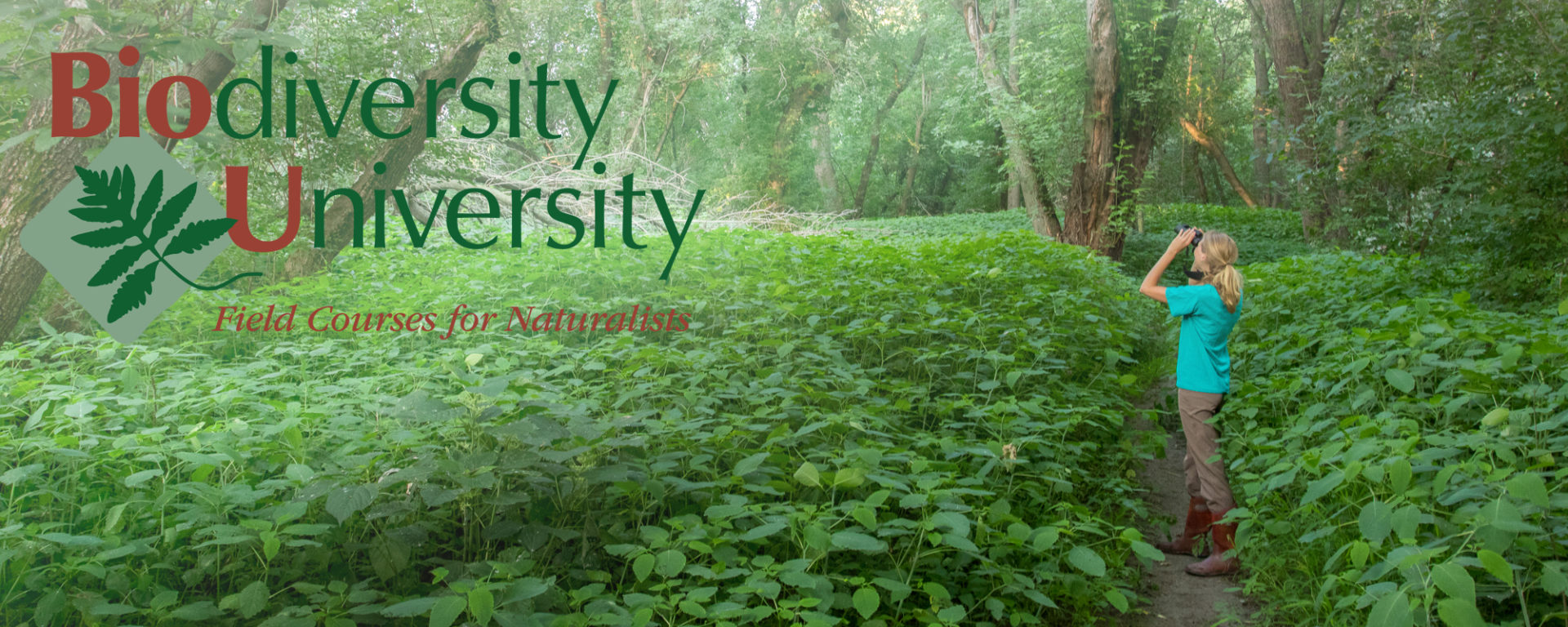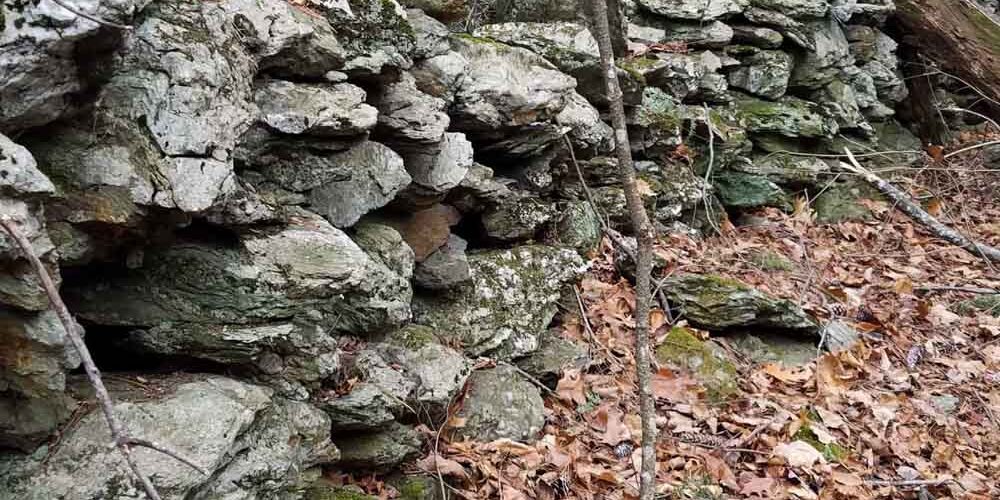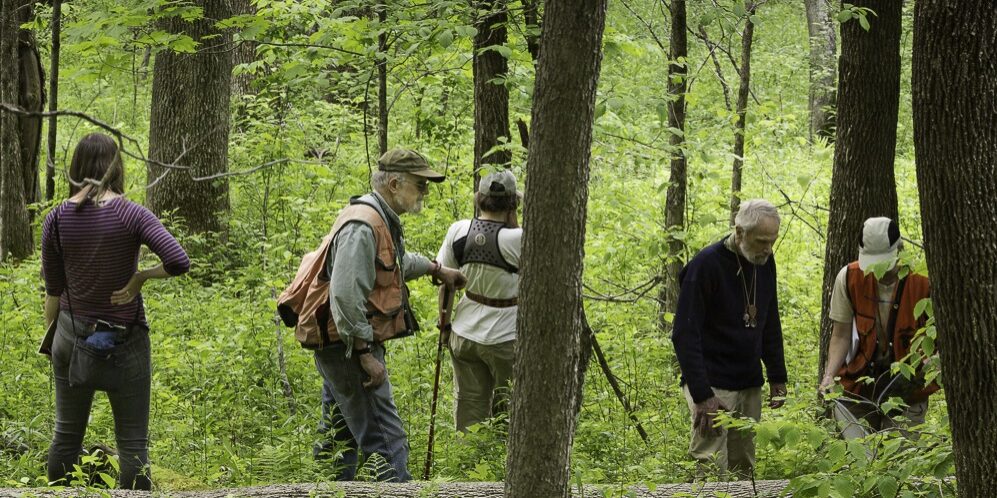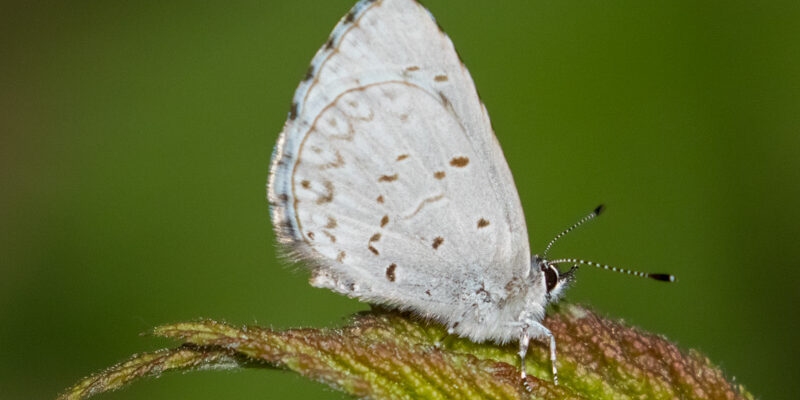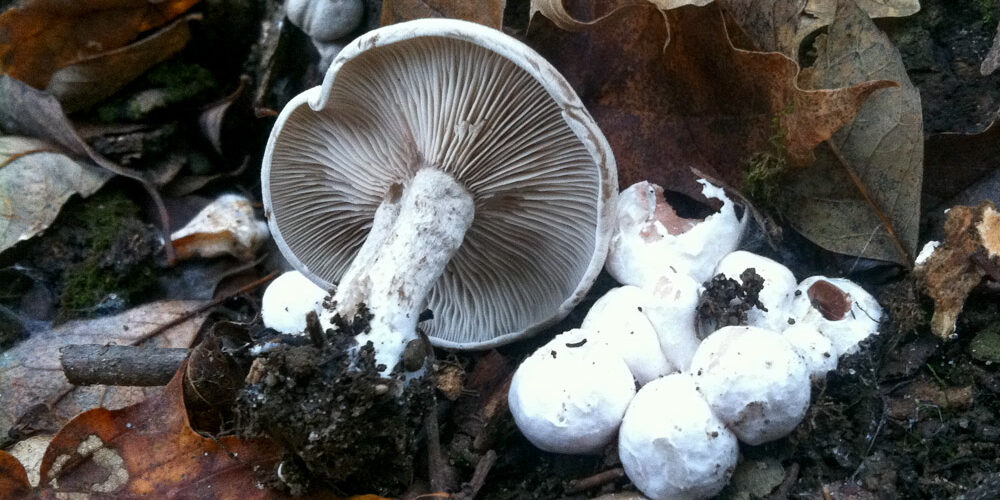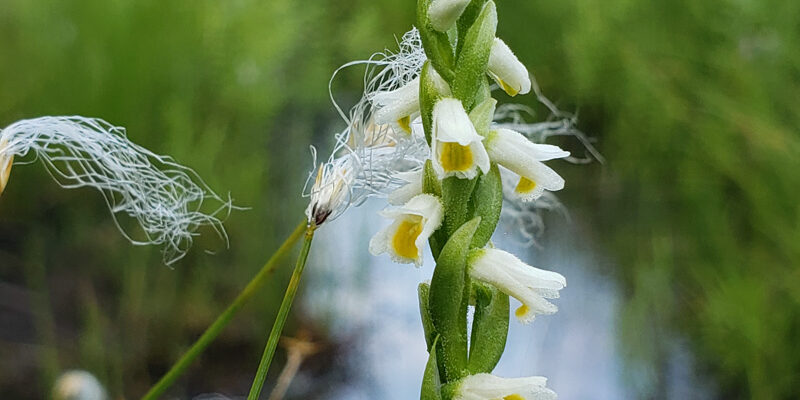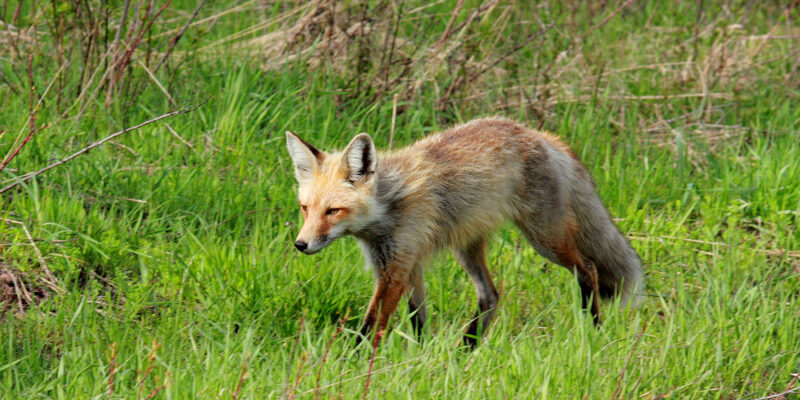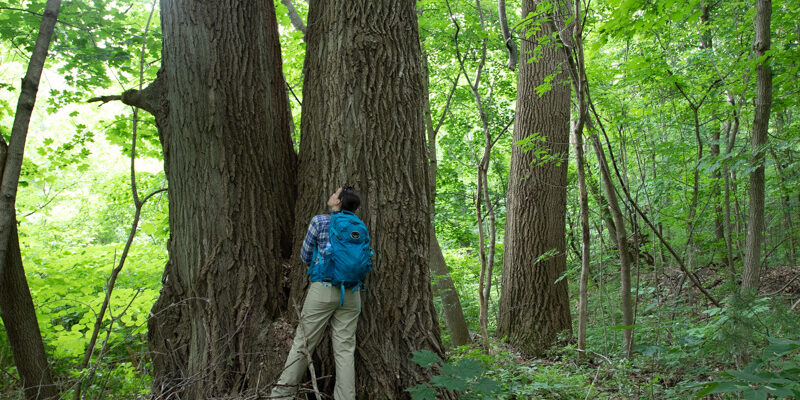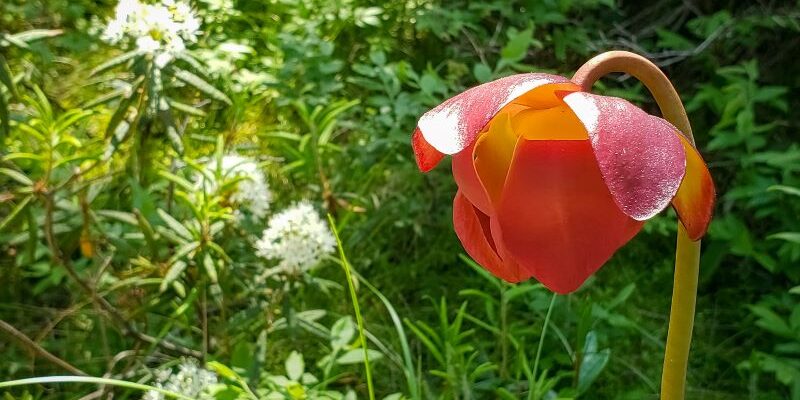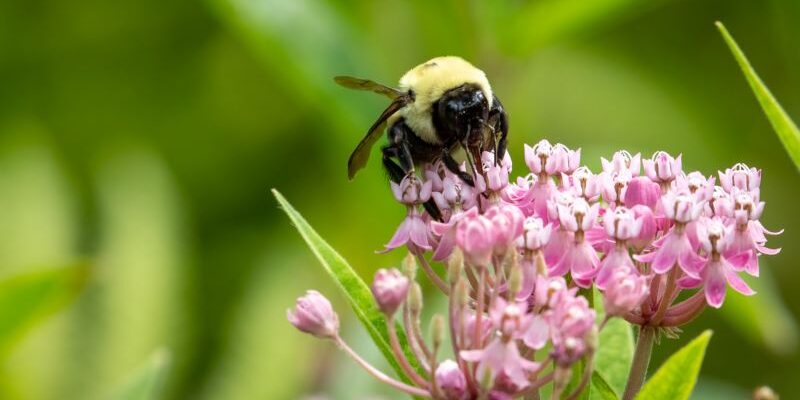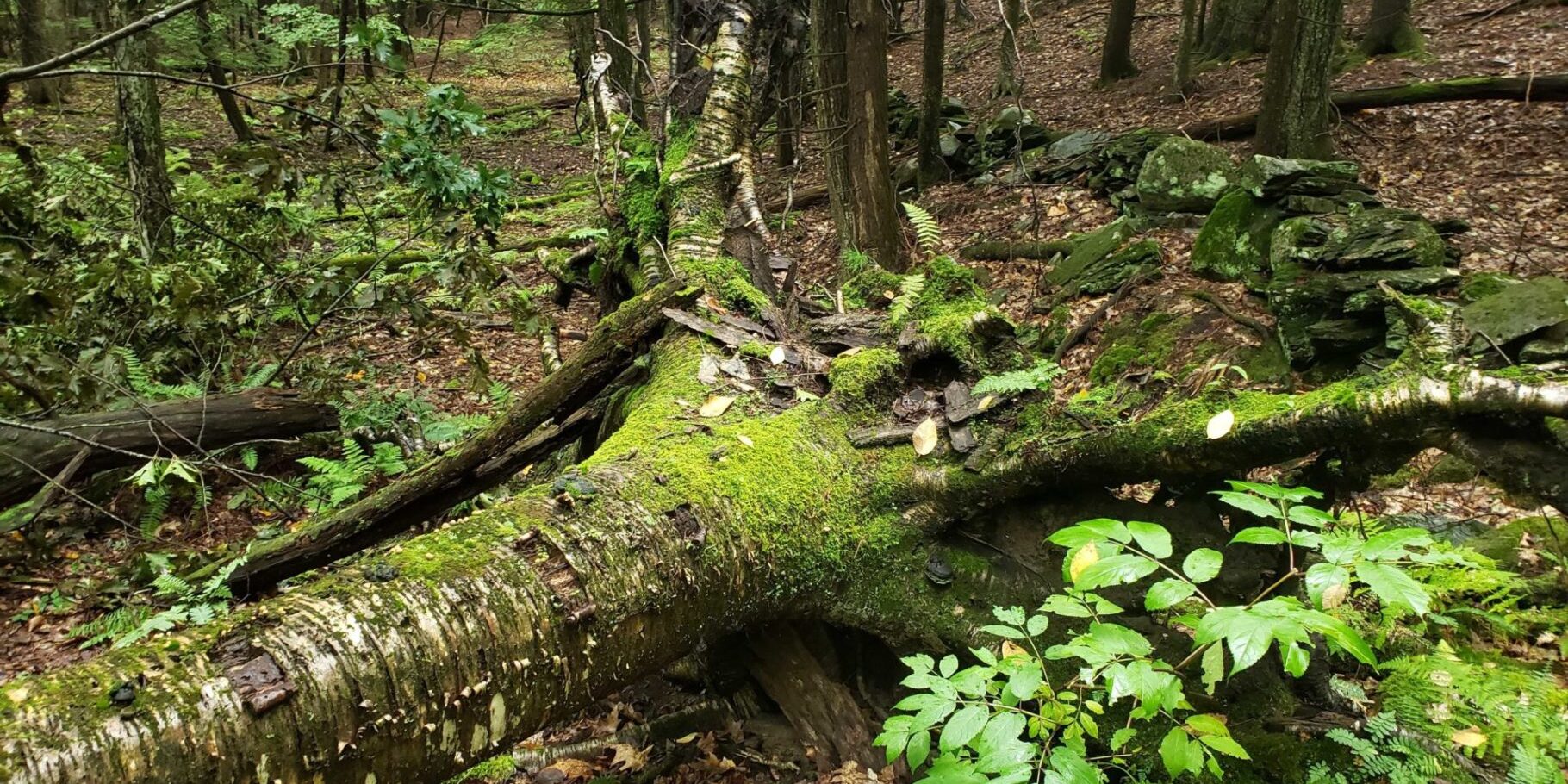Biodiversity University offers in-depth nature study taught by the region’s finest experts and educators. Our students are weekend naturalists, working ecologists, and anyone with an insatiable drive to understand the pieces and patterns of our wild world.
You won’t find admissions committees, dean’s offices, or football teams here. At BioU, our star athletes swing insect nets. Our mascots are Arethusa orchids, Promethea silkmoths, and an orange slime of uncertain biological origins. Our campus comprises Vermont’s diverse wildlands, headquartered at the lab and classrooms of Montpelier’s North Branch Nature Center.
Spend a weekend or a week this summer immersed outdoors in a learning community of like-minded nature lovers.
More about Biodiversity University
BioU is headquartered at Montpelier’s North Branch Nature Center, where students can learn together in the center’s comfortable classrooms, lab, and kitchen. The atmosphere is innovative and entertaining, fostering education, discovery, and personal and professional growth. NBNC’s beautiful facilities and 28-acre property complement BioU’s wider “campus” – the fields, forests, mountains, and wetlands of Vermont. The bulk of each course is spent outside, returning to NBNC for lab work and lecture.
BioU invites instructors who are renowned for both their topical expertise and their prowess as educators. We’ve all taken classes by geniuses who can’t explain themselves, or terrific teachers with limited content knowledge – not at BioU. We prioritize in-depth learning from the best instructors in the business.
We give our instructors the reins to design their ideal course, and work with them to sculpt a program that fits our participants’ interests, budgets, and busy schedules. Courses are one to five days long, and include full days of learning.
BioU students are retirees discovering birdwatching, accountants learning watercolors, professional ecologists curious about edible plants, or graduate students practicing sedge identification. Students are not expected to have prerequisite expertise in the topic. The only course prerequisite is a desire for in-depth learning. BioU draws participants from around New England and across the east coast.
Participants must be 18 years or older.
Graduate-level credit is available for most BioU courses with an additional $200 per-credit fee. All BioU courses are accredited by Vermont State University Center for Schools. Participants interested in receiving credit must contact us at least 2 months in advance so we have time to arrange course accreditation. Weekend-length courses qualify for one graduate-level science credit. Longer courses qualify for two to three graduate-level credits. Credits can generally satisfy undergraduate requirements as well. Students are responsible for ensuring that their home institutions will accept the credits.
Participants seeking credit will be required to complete additional reading and writing assignments to satisfy the requirements of our accrediting institution.
All BioU courses qualify for Continuing Education Units. A certificate of completion, indicating CEUs and professional development hours are provided following each course.
Enrolling for academic credit? If you have already enrolled in a BioU course, and are seeking academic credit, you must also register with VSU Center for Schools. We will provide instructions for doing this.
Food
We offer coffee, tea, and light breakfast fare (pastries, etc.) each morning when courses convene at NBNC. Please bring your own lunch, snacks, and drinks.
Lodging
Participants may camp at NBNC with permission. Biodiversity University does not offer formal onsite lodging for participants, but there are several nearby options covering a range of styles and price points. We recommend the following options:
Capitol Plaza ($200/night; Montpelier)
The Inn at Montpelier ($200/night; Montpelier)
High Hill Inn ($150/night; East Montpelier)
Comfort Inn and Suites ($120/night; Berlin VT)
Marshfield Inn and Motel ($100/night; Marshfield, VT)
AirB&B ($60-$150+/night; options vary)
Please Click Here to see course offerings from previous seasons.
We have financial aid available for most courses! Please contact [email protected] to request financial support, and we will provide you with a financial support package that works for your needs.
BioU satisfies a strong demand for in-depth, immersive nature study. This university has no sports team, no admission’s office, and no deans or provosts. Instead, BioU has Vermont’s rich and varied assemblage of natural communities – wild places well-suited to intensive field study and creative learning – and a community of passionate and renowned instructors.
We recruit skilled and enthusiastic biologist educators to lead field-based seminars across a range of disciplines rarely found at academic institutions. BioU offers insights into the forces of nature: the harmony and diversity in groups of organisms, the simple and complex interactions between the biological and the physical, and the skills for identifying life in the natural world.
"Everything depends on our ability to sustainably inhabit this earth,
and true sustainability will require us all to change our way of thinking
on how we take from the earth and how we give back"
— Deb Haaland (Pueblo of Laguna; US Department of Interior Secretary)

713 Elm Street
Montpelier, Vermont 05602
(802) 229-6206
Hours: Center Open Monday-Friday 9-4
Trails Open 24/7

